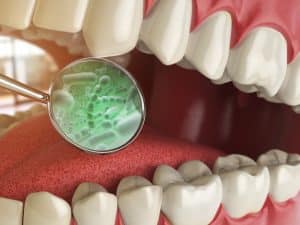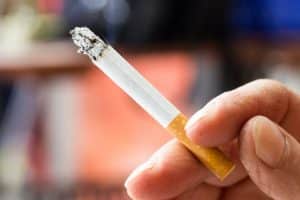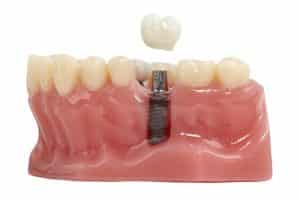 That fact that food affects your oral health should not come as a surprise. After all, food enters your body through your mouth. What is less-known, however, is how certain foods interact with your mouth, or what particular nutrients can dictate the status of your oral health. The truth is that your oral and periodontal structures require a healthy flow of essential minerals and nutrients just as the rest of your body’s systems. Below, we explore a few minerals and nutrients that are particularly important to your continued good oral health. (more…)
That fact that food affects your oral health should not come as a surprise. After all, food enters your body through your mouth. What is less-known, however, is how certain foods interact with your mouth, or what particular nutrients can dictate the status of your oral health. The truth is that your oral and periodontal structures require a healthy flow of essential minerals and nutrients just as the rest of your body’s systems. Below, we explore a few minerals and nutrients that are particularly important to your continued good oral health. (more…)
Connections Between Alzheimer’s and Periodontal Disease
 A study conducted by NYU dental researchers in 2010 determined that the presence of gum disease can increase your risk of Alzheimer’s disease. The team examined over 20 years of data and research on 152 elderly subjects. The findings indicated that subjects who exhibited gum inflammation at the beginning of the study were nine times more likely to score lower on cognitive tests than their counterparts who had no inflammation. By highlighting the connections between periodontal disease and cognitive decline, the study also emphasizes the systemic benefits of maintaining good periodontal health. (more…)
A study conducted by NYU dental researchers in 2010 determined that the presence of gum disease can increase your risk of Alzheimer’s disease. The team examined over 20 years of data and research on 152 elderly subjects. The findings indicated that subjects who exhibited gum inflammation at the beginning of the study were nine times more likely to score lower on cognitive tests than their counterparts who had no inflammation. By highlighting the connections between periodontal disease and cognitive decline, the study also emphasizes the systemic benefits of maintaining good periodontal health. (more…)
Two Ways Oral Bacteria Threaten Your Overall Health
 Although you may not realize it, your mouth hosts a jungle of organisms and bacteria (over 600 different species of bacteria, to be precise). That could be a scary number, but thankfully, most of these bacteria are harmless and just want to enjoy your unwitting hospitality. Some are even helpful and assist in neutralizing harmful bacteria and other agents. There are a few, though, that deserve careful attention. The following two, in particular, are among the most notorious oral bacteria that work tirelessly to compromise your oral health, and as a result, your long-term systemic wellbeing. (more…)
Although you may not realize it, your mouth hosts a jungle of organisms and bacteria (over 600 different species of bacteria, to be precise). That could be a scary number, but thankfully, most of these bacteria are harmless and just want to enjoy your unwitting hospitality. Some are even helpful and assist in neutralizing harmful bacteria and other agents. There are a few, though, that deserve careful attention. The following two, in particular, are among the most notorious oral bacteria that work tirelessly to compromise your oral health, and as a result, your long-term systemic wellbeing. (more…)
Do Gums Hold the Key to Controlling Inflammation?
 A healthy smile is well-equipped to defend itself against most dental issues. For instance, your teeth are protected by the strongest substance your body produces, called tooth enamel, which protects your teeth from damage and disease. Your saliva consists mostly of water to help neutralize acids and rinse away harmful oral bacteria. Today, we explore another wonder that can be discovered tucked away in your gingival tissue—adult stem cells that can aid in tissue regeneration, as well as fight the destruction of untamed tissue inflammation. (more…)
A healthy smile is well-equipped to defend itself against most dental issues. For instance, your teeth are protected by the strongest substance your body produces, called tooth enamel, which protects your teeth from damage and disease. Your saliva consists mostly of water to help neutralize acids and rinse away harmful oral bacteria. Today, we explore another wonder that can be discovered tucked away in your gingival tissue—adult stem cells that can aid in tissue regeneration, as well as fight the destruction of untamed tissue inflammation. (more…)
The Effects of Smoking on Your Oral Health
 Government regulation has forced the manufacturers of tobacco products to post warnings in conspicuous locations on their packages. However, not everyone who smokes is aware of the significant dangers that the habit poses to their oral health. To raise awareness of the dangers of smoking, we explore some of the more troublesome facts about how smoking and smokeless tobacco can seriously threaten your oral health. (more…)
Government regulation has forced the manufacturers of tobacco products to post warnings in conspicuous locations on their packages. However, not everyone who smokes is aware of the significant dangers that the habit poses to their oral health. To raise awareness of the dangers of smoking, we explore some of the more troublesome facts about how smoking and smokeless tobacco can seriously threaten your oral health. (more…)
A Few Tips for Better Hygiene Practices
 After a lifetime of repetition, brushing and flossing your teeth is the kind of thing you do without always thinking about it. Yet, how much do you know about the simple daily ritual? While keeping your smile healthy is essentially a simple task, knowing how your daily rituals and routines affect your dental health can help you ensure that you get the most out of your dental hygiene. To that end, we offer a few tips for better hygiene practices, along with reasons why improving your hygiene is so important. (more…)
After a lifetime of repetition, brushing and flossing your teeth is the kind of thing you do without always thinking about it. Yet, how much do you know about the simple daily ritual? While keeping your smile healthy is essentially a simple task, knowing how your daily rituals and routines affect your dental health can help you ensure that you get the most out of your dental hygiene. To that end, we offer a few tips for better hygiene practices, along with reasons why improving your hygiene is so important. (more…)
Why Have My Teeth Become Loose?
 Teeth can become loose due to a bite misalignment or an injury, but the most common cause of loose teeth is periodontitis (severe gum disease). As the number one cause of adult tooth loss in America, unchecked gum disease destroys the gum tissue and jawbone that support your teeth. Whatever the cause, loose teeth are at a significant risk of becoming lost teeth if steps aren’t taken to correct the underlying problem. Fortunately, Dr. Kania can address the consequences that lead to loose teeth, and can help you prevent them from becoming lost teeth. (more…)
Teeth can become loose due to a bite misalignment or an injury, but the most common cause of loose teeth is periodontitis (severe gum disease). As the number one cause of adult tooth loss in America, unchecked gum disease destroys the gum tissue and jawbone that support your teeth. Whatever the cause, loose teeth are at a significant risk of becoming lost teeth if steps aren’t taken to correct the underlying problem. Fortunately, Dr. Kania can address the consequences that lead to loose teeth, and can help you prevent them from becoming lost teeth. (more…)
Quiz: What Causes Gum Disease?
 People are often surprised to hear how common periodontal disease can be. In fact, Centers for Disease Control studies show about half of adults over the age of 30 suffer from some form of the disease. But what causes gum disease? We hope that by better understanding the factors behind the disease, as well as the early warning signs, you can take steps to protect your oral health and address the problem early on!
People are often surprised to hear how common periodontal disease can be. In fact, Centers for Disease Control studies show about half of adults over the age of 30 suffer from some form of the disease. But what causes gum disease? We hope that by better understanding the factors behind the disease, as well as the early warning signs, you can take steps to protect your oral health and address the problem early on!
Do You Have Questions About Dental Implants?
 We understand how embarrassing losing a tooth can be. We also understand that not replacing the lost tooth can mean serious complications arising, including an older appearance. Fortunately, we can help you enjoy a full smile again with a unique and lifelike dental prosthetic: dental implants. Do you have questions about dental implants?
We understand how embarrassing losing a tooth can be. We also understand that not replacing the lost tooth can mean serious complications arising, including an older appearance. Fortunately, we can help you enjoy a full smile again with a unique and lifelike dental prosthetic: dental implants. Do you have questions about dental implants?
Do I Have Gum Disease?
 A simple question: Do you have gum disease? Despite the widespread prevalence of this disease, few people understand what symptoms to watch for. Even fewer understand the risks of not seeking treatment of the disease before the advanced stage can develop.
A simple question: Do you have gum disease? Despite the widespread prevalence of this disease, few people understand what symptoms to watch for. Even fewer understand the risks of not seeking treatment of the disease before the advanced stage can develop.



